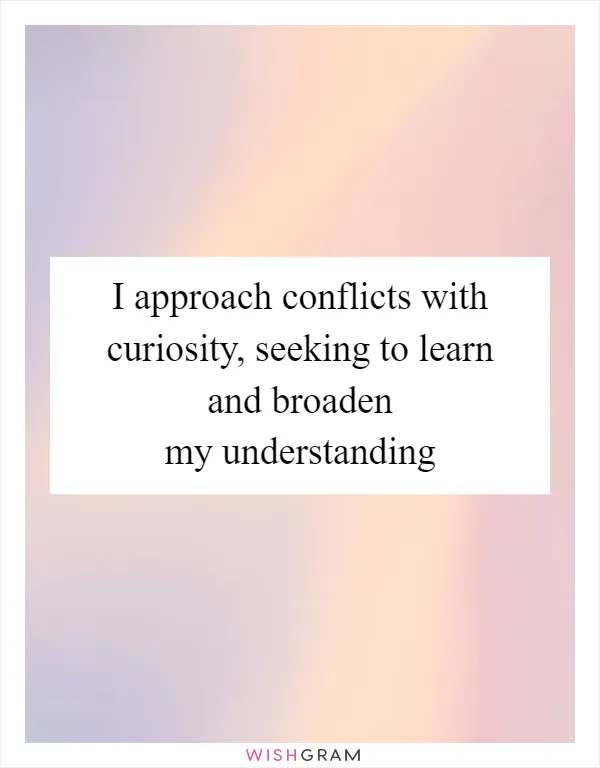I approach conflicts with curiosity, seeking to learn and broaden my understanding
Conflict is a natural part of life. It can happen in any situation, whether it's at work, home, or in a relationship. When conflicts arise, it's easy to become defensive and try to prove your point. However, this approach often leads to more conflict and can make the situation worse. Instead, try approaching conflicts with curiosity, seeking to learn and broaden your understanding. This affirmation can help you navigate conflicts in a more productive way.
When you approach conflicts with curiosity, you're open to learning about the other person's perspective. You're not just focused on proving your point or winning the argument. Instead, you're genuinely interested in understanding where the other person is coming from. This can help you find common ground and work towards a resolution that benefits everyone involved.
Seeking to learn and broaden your understanding can also help you see conflicts as opportunities for growth. Instead of seeing them as obstacles to overcome, you can view them as chances to learn more about yourself and others. This can help you develop empathy and compassion, which can improve your relationships and overall well-being.
Approaching conflicts with curiosity can also help you avoid getting stuck in a cycle of negativity. When you're defensive and focused on winning, it's easy to get caught up in negative emotions like anger and frustration. However, when you approach conflicts with curiosity, you're more likely to stay calm and rational. This can help you avoid escalating the situation and keep the conversation productive.
Of course, approaching conflicts with curiosity isn't always easy. It can be challenging to set aside your own beliefs and opinions and truly listen to someone else. However, with practice, it can become a habit. You can start by asking questions and actively listening to the other person's responses. Try to understand their perspective without judgment or criticism. This can help you build trust and create a more positive environment for resolving conflicts.
